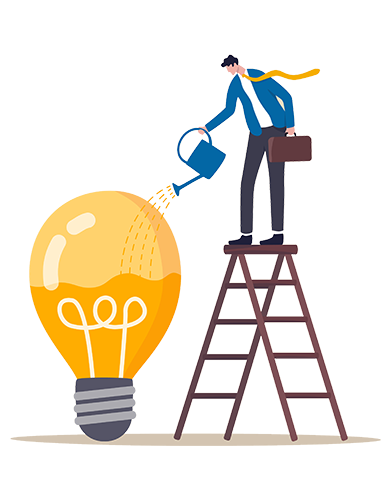Thank you for your interest in E-Science-Tage 2023!
Dear researchers and RDM enthusiasts,
We want you to share your ideas and projects for E-Science-Tage 2023! We are looking for research-focused papers as well as best practices and case studies that fit the conference theme of "Empower Your Research - Preserve Your Data" and address the following topics:
-
Data archiving, reproducibility and reusability
-
Data publication and Open Science
-
Data formats and standards
-
Data law, data protection and data security
-
Quality assurance
-
Specific and generic RDM tools
-
Institutional approaches
The following applies to all contributions:
-
All submitted contributions will be reviewed by the program committee with regard to their timeliness and thematic relevance. The review is conducted anonymously by the program committee; therefore, authorship should not be provided within the abstract file.
-
The contributions may be submitted and presented in either German or English.
-
At least one author of an accepted contribution is expected to attend the conference to present their work.
-
Maximum word count of the abstract: 500
Important dates: There will be no extension.
Abstract submission deadline: 31.10.2022
Selection decision: 15.12.2022
Manuscript submission deadline: 15.05.2023. Please use this template for your manuscript.
Get started and submit your entry now!
Link to the conference tool

Step 1: Register and submit your abstract
To submit your abstract, you first need to create an account in our conference tool. As soon as you have set up an account, you can upload your abstract (Accepted formats: .docx /.pdf /.tex).
Step 2: Choose the format
Choose your preferred format according to the length and topic of your contribution.
- Presentation: Contributors, if accepted, will be invited to the conference for a 20-minute time slot (15-minute presentation and 5-minute Q&A session). Authors can choose between a "Tandem Talk" or a "Technology Track" for their presentation.
- Lightning Talks: The "Lightning Talk" format consists of short presentations, which are thematically oriented around the conference theme. This involves 7-minute time slots (5-minute presentation and 2-minute Q&A session).
- Posters: Authors of accepted contributions are invited to present their posters during a poster session. Posters will need to be brought to the conference by the authors themselves.
- Workshops: Workshops provide an opportunity for the exchange of ideas about specific services, tools or projects with a focus on their application and utility for science and the scientific community. Workshops are scheduled to have 90-minute time slots.
Step 3: Publication in the 2023 conference proceeding book
We offer to publish accepted contributions as articles in the conference proceeding book.
In order for this to be possible, please fill out the consent form and upload the document with your manuscript on the conference tool. Please note that the consent form must be signed by all authors and coauthors.
After a review phase, the contributions will be published via heiBOOKS. Please use this template for your manuscript.
- Presentation: Accepted “Tandem Talks” and “Technology Track” entries can be formulated into articles with a maximum length of 12 pages.
- Lightning Talk: Entries accepted as a “Lightning Talk” can be formulated into articles with a maximum length of 5 pages.
- Poster: Accepted poster entries can be formulated into articles with a maximum length of 5 pages.
You will also have the opportunity to publish your poster as an Open Access publication via the Heidelberg document server heiDOK. Please make sure that you submit a signed copy of the consent form with your final poster as a PDF file.
Bilder: Nuthawut / stock.adobe.com, toonsteb / stock.adobe.com
Program Committee
Program committee members for the evaluation of the submitted contributions is composed of:
- Dr.-Ing. Patrick Altschuh - Group Leader: Microstructure - Data Science, Institute for Digital Materials Science (IDM) Karlsruhe University
- Dr. Sabine Gehrlein- Director of the Mannheim University Library
- Prof. Dr. Vincent Heuveline, Director of the Heidelberg University Computing Center
- Prof. Dr. Roland S. Kamzelak, Deputy Director, Head of Development German Literature Archive Marbach
- Oliver Kohl-Frey, Director of the Communication, Information, Media Center (KIM) of the Konstanz University
- Dr. Claudia Kramer, Head of Research Services of the Library of the Karlsruhe Institute of Technology (KIT)
- Matthias Landwehr, Head of Team Open Science, Media Center (KIM) of the Konstanz University
- Jan Leendertse, Research Data Management Group, University of Freiburg
- Dr. Michael Derntl- Head of Digital Humanities Center and Dr. Eberle Center for Digital Competence at Tübingen University
- Dr. Anja Oberländer, Deputy Director of the Communication, Information, Media Center (KIM) of the Konstanz University
- Dr. Thorsten Trippel, NFDI Consortium Text+, Leibniz Institute for the German Language, Mannheim, and Eberhard Karls University Tübingen
- Dr. Arne Upmeier, Director of Karlsruhe Institute of Technology (KIT) Library
- Prof. Dr. Thomas Walter, Director the Center for Data Processing (ZDV) at Tübingen University
- Prof. Dr. Stefan Wesner, Director IT Center University Cologne (ITCC)


